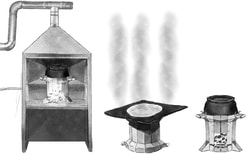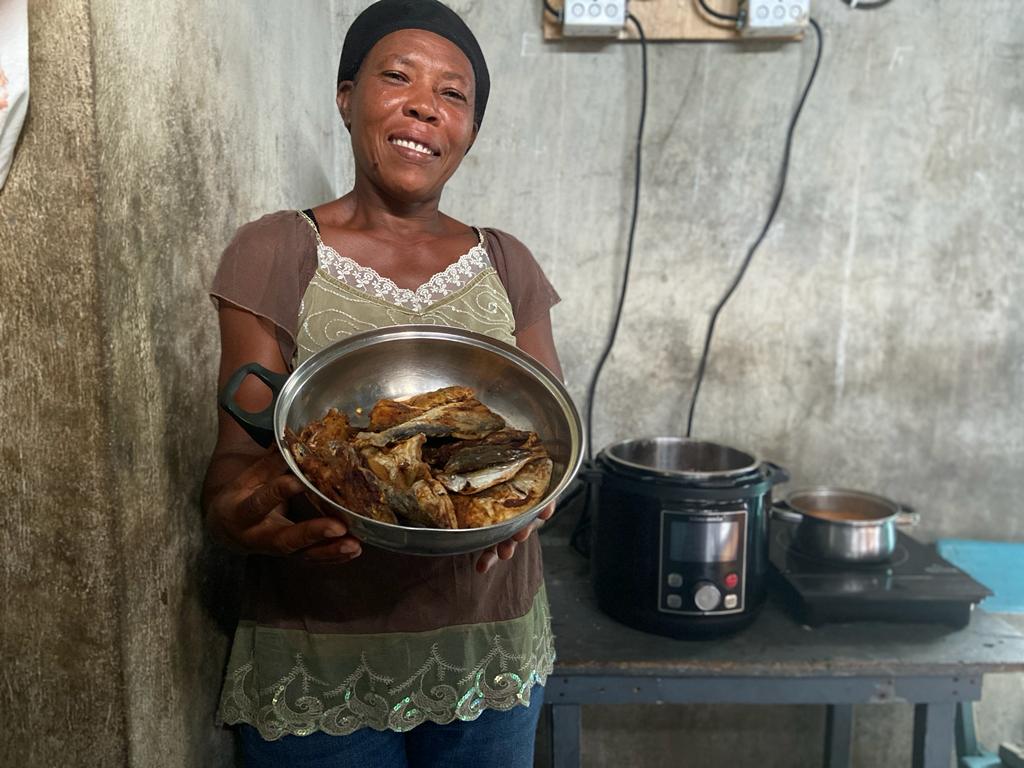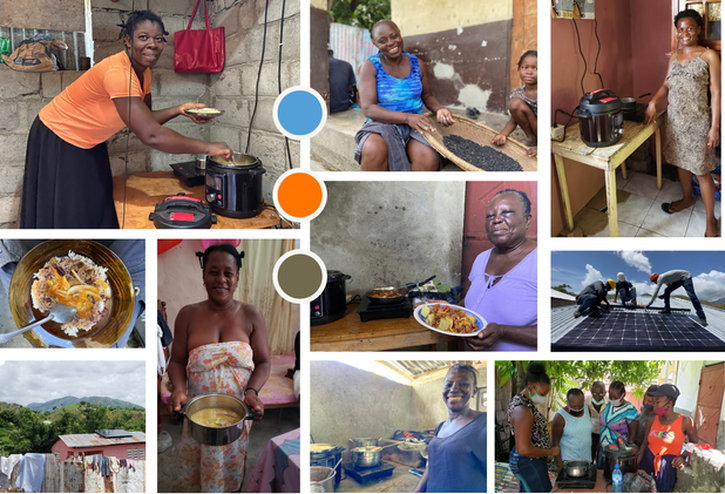PAPERS + Fact Sheets
EarthSpark International researches, develops, and implements energy access innovations that contribute to the global energy transition. Read our selection of policy advocacy, position papers, and lessons from the field to learn more.
FEATURED PAPERs
|
Memo: Electric cooking potential, willingness to pay, and costing in Haiti
A literature review and summary of key findings from EarthSpark's electric cooking pilot in rural Haiti. "If every new grid or microgrid electricity connection had not only a light bulb and plug but also an electric kitchen, both the clean cooking sector and the electricity access would likely advance more quickly and efficiently with greater benefits to people and planet." Web version here and PDF version here. |
|
Kwison Elektrik: Solar Power for Electricity Access and Electric Cooking in Haiti
A research project in rural Haiti demonstrates the effectiveness of electric cooking technologies powered by solar microgrids to improve the quality of life for community members while generating new revenue streams and opportunities for energy access providers. The executive summary and link to download the full report is here. |
Previous EarthSpark papers

Viable Productive Uses of Electricity Programs Remain Elusive: A practitioner's field-based recommendations for overcoming challenges By Brian Gurr and Allison Archambault Productive uses of electricity such as machines that can perform agricultural processing are core to unlocking the economic development potential of community microgrids around the world. While energy access funders are now interested in this concept, the reality remains that truly transformative ‘plug and play’ applications remain elusive. Read the full paper here. 
Medium Voltage Distribution Considerations in Clean Energy Community-Scale Microgrids
Community-scale clean energy microgrids have characteristics that make them different from large-scale infrastructure and even from diesel-powered microgrids. While there is little written on this topic, we posit here that choosing an appropriate medium voltage level is important for stable and efficient microgrid operation. Read more: Medium Voltage and National Grid Interconnection Considerations by Adam Eberwein (Cliquer ici pour la version en français: Discussion sur le système de distribution d'EarthSpark en moyenne tension) Minigrid Distribution System Voltages by Doug Danley (Cliquer ici pour la version en français: Notes sur le choix du niveau de la moyenne tension pur un micro-réseau) |
Others' Papers We're reading nowWomen, Energy, and Economic Empowerment from Deloitte University Press explores the link between gender empowerment and energy access:
"We believe that while there are many areas critically important for women’s development, energy access programs are an under-explored lever for women’s economic empowerment." 
The 2021 edition of Tracking SDG 7: The Energy Progress Report monitors and assesses achievements in the global quest for universal access to affordable, reliable, sustainable, and modern energy by 2030. The latest available data and selected energy scenarios reveal that at today’s rate of progress, the world is not on track to achieve SDG 7. This is particularly true of the most vulnerable countries and those that were already lagging. This report also examines various ways to bridge the gaps, chief among them the goal of significantly scaling up renewable energy while maximizing its socioeconomic benefits. Go to the SDG7 Tracking site. (There's Haiti specific tracking there too. Spoiler : Haiti's not on track either. Astonishingly, the report finds that just 1% of people in rural Haiti have access to electricity.) 
For Cook and Climate: Certify cookstoves in their contexts of use
By Samer Abdelnour and Crispin Pemberton-Pigott in Energy Research & Social Science, Vol. 44, 2018, pg. 196-198 "Improved cookstoves are widely promoted as health and climate improving technology, yet there remains a wide gap between their reputed benefits and the inconclusive outcomes of most interventions. An increasing number of scientists suggest that the popular lab protocols used to test, rate and model the benefits of improved cookstoves are at least partly to blame. Insights from a recent study of improved cookstove users in Darfur, Sudan, reveal the extent to which the logic and goals of lab-based testing protocols differ from actual cooking practices. We elaborate on the climate and energy policy implications of decontextualized lab tests and conclude with a call to design, test and select for dissemination only those improved cookstoves that are rated on the basis of their intended contexts of use." Read the full paper here. |


